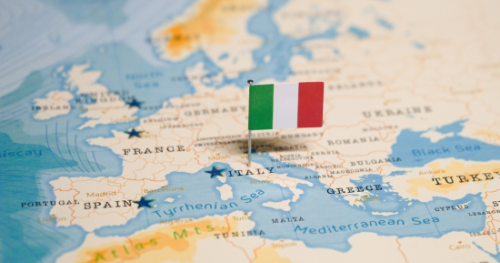 On January 11, 2024, Law no. 206/2023, titled “Organic provisions for the valorization, promotion and protection of Made in Italy” (the “Law”), came into effect.[1]
On January 11, 2024, Law no. 206/2023, titled “Organic provisions for the valorization, promotion and protection of Made in Italy” (the “Law”), came into effect.[1]
The Law is composed of different provisions in numerous areas. Many of the provisions relate to the issue of intellectual property protection with reference to products of Italian origin.
Specifically, Article 7 contains provisions for protection of trademarks of special national interest and value. Under Article 7, when the owner of a trademark that has been registered for at least 50 years or for which it is possible to prove continuous use for at least 50 years intends to cease permanently the activity carried out, in order to protect trademarks of special interest and national value and to prevent their extinction, the Ministry of Enterprises and Made in Italy may take ownership of the trademark free of charge, provided that the trademark has not been sold by the owner. This provision has been criticized, as it would grant the Ministry of Enterprises and Made in Italy the power to expropriate trademarks without compensation, which is incompatible with the Italian Constitution and EU law.
Article 22 grants cultural sites and institutions the right to register trademarks that characterize them and to grant the use of their trademarks to third parties in exchange for monetary compensation. This provision aims at fostering the-financing capacity of cultural institutions, as it allows them to monetize their cultural notoriety. In a similar vein, Article 23 of the Law strengthens the protection of domain names connected to Italian cultural heritage.
Additionally, Articles 41 to 48 of the law protect products made in Italy. Articles 41 to 46 govern non-food products with IGP (protected geographical indication) status. These provisions establish an official mark indicating Italian origin of goods. This mark will not have the nature of a normal trademark, as this would be merely descriptive and not enforceable abroad, but of an official state mark printed exclusively by the Istituto Poligrafico e Zecca dello Stato, with descriptive value indicating the Italian origin of the goods bearing it. The mark will prohibit its use by anyone for products that were not produced by companies that manufacture goods in Italy, in accordance with current EU regulations. Article 47 and 48 of the Law encourage wider use of blockchain, metaverse, and artificial intelligence (AI) technology for management of production chains, including in the agribusiness sector.
Articles 49 to 56 of the Law contain core measures to bolster the fight against counterfeiting. These include measures to simplify the drafting of records of seizure of counterfeit goods, measures to make it easier to destroy counterfeit goods in advance without waiting for the end of a trial—as long as samples needed for evidence are preserved—and general measures that increase sanctions for counterfeiting.
In addition, the Law introduces a few other measures concerned with bolstering innovation and content creation. These include some provisions aimed at making it easier for startups to make early investments in intellectual property. Article 6 introduces a government grant for innovative startups and microenterprises that can be used to purchase consulting services designed to verify the patentability of inventions or to conduct preventive prior art searches, draft patent applications, and manage filing with the Italian Patent and Trademark Office, including filing for extension of a domestic patent application abroad. Also, to protect digital creators, who are defined as “artists who develop original works with significant digital content,” Article 27 of the Law mandates the Ministry of Culture to issue a decree that establishes a directory of the works of digital creators in the public register of protected works.
Overall, the Law introduced measures of varying scope—some greeted more enthusiastically than others by intellectual property experts. Some measures will necessarily have to be clarified further by upcoming ministerial decrees, on which the implementation results of the Law will also depend.
[1] The full text of Law no. 206/2023 is available in Italian here.

